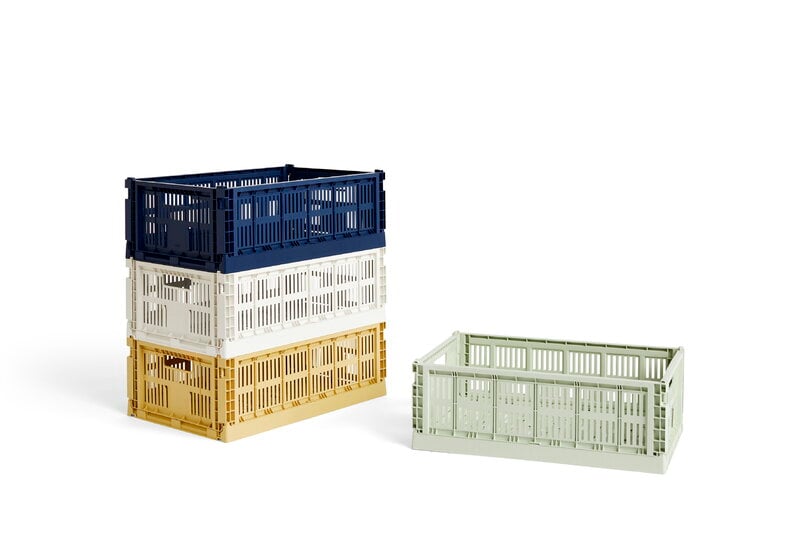Eco-Friendly Industrial Recycling Made Easy With Made Use Of Plastic Containers
In the world of commercial operations, the pursuit for eco-friendly practices has actually become critical in today's international landscape. One specifically encouraging opportunity for attaining sustainability depends on the reliable recycling of made use of plastic containers. These containers, often neglected once their initial objective has been served, hold untapped possibility for adding to a circular economy. By discovering the different facets of repurposing these plastic vessels, industries can not just lower waste yet likewise make significant strides in the direction of decreasing their environmental impact. The advantages are multifaceted, including cost-effectiveness, resource preservation, and a concrete dedication to maintaining the planet for future generations.
Advantages of Using Used Plastic Containers
Utilizing utilized plastic containers in commercial recycling refines not just minimizes ecological influence but also contributes to sustainable and cost-efficient practices. By incorporating used plastic containers into recycling campaigns, markets can significantly lower the amount of virgin plastic needed for manufacturing, therefore lowering and conserving all-natural sources energy intake (recycled plastic containers). This practice aligns with the principles of a round economic climate, where materials are recycled and reused to minimize waste and promote effectiveness

Easy Tips for Repurposing Containers
When repurposing containers for industrial recycling, reliable techniques can maximize and simplify the process source use. To begin, thoroughly tidy the utilized plastic containers to get rid of any type of deposit or contaminants. This step is essential to ensure the top quality of the recycled material and protect against contamination during the reusing process. Following, sort the containers based on their kind and grade of plastic to facilitate the recycling process. used bulk plastic containers. Appropriate arranging assists in enhancing the reusing effectiveness and makes sure that each kind of plastic is reused suitably.
After sorting, think about crushing or compacting the containers to conserve storage space and transport costs. Portable containers are easier to keep and deal with, making the reusing process more convenient. In addition, labeling the containers with their plastic kind and weight can further improve the recycling process and assistance recycling facilities refine the materials a lot more effectively.
Effect of Recycling on Sustainability
The method of recycling plays a crucial function in promoting sustainability by lowering waste and conserving useful resources. Recycling used plastic containers contributes considerably to ecological sustainability by minimizing the amount of plastic waste that winds up in garbage dumps or seas. By recycling plastic containers right into brand-new items, the requirement for virgin materials is minimized, which aids in preserving natural resources and energy. This other process also aids in reducing greenhouse gas exhausts related to the manufacturing of new plastic things.

Moreover, reusing plastic containers aids in decreasing the need for raw products required for manufacturing, thereby lessening the ecological effect of her comment is here drawing out and refining these sources. Furthermore, by diverting plastic containers from land fills, recycling plays a component in minimizing soil and water pollution, resulting in a healthier ecosystem. In general, the influence of recycling on sustainability is profound, promoting an extra round economic climate where materials are reused, minimizing the burden on the environment and promoting a much more sustainable future for generations to come.
Industrial Applications for Recycled Plastics
Reusing utilized plastic containers not just adds to environmental sustainability however additionally opens up a variety of industrial applications for the reprocessed materials. The versatility of recycled plastics makes them useful resources in numerous markets. One key application remains in the production field, where recycled plastics can be utilized to produce a broad array of products, including vehicle parts, building and construction materials, and product packaging containers. By making use of recycled plastics in producing processes, firms can decrease their reliance on virgin products, lowering manufacturing costs and decreasing environmental influence.
Furthermore, recycled plastics locate substantial usage in the packaging market. Numerous companies are now selecting green packaging services made from recycled plastics to fulfill customer demands for sustainable items. Additionally, recycled plastics are employed in the manufacturing of textiles, such as clothes, carpets, and furniture, offering a much more lasting choice to conventional synthetic fibers. In the construction market, recycled plastics are incorporated right into building products like composite lumber, roof covering ceramic tiles, and insulation, supplying ecologically pleasant and long lasting choices for building projects. In general, the commercial applications of recycled plastics play an important function in promoting a round economic climate and decreasing waste in numerous fields.
Tips for Efficient Container Recycling
To enhance the effectiveness more info here of container recycling procedures, it is vital to apply reliable arranging techniques and enlighten individuals on appropriate disposal methods. Effective arranging starts at the resource, where containers are apart based on their product make-up. Clear identifying and designated recycling containers help in this procedure, guaranteeing that plastics are appropriately arranged for reusing centers. Additionally, promoting recognition concerning the relevance of recycling and the particular kinds of containers accepted for recycling aids decrease contamination and improves the top quality of recycled materials.
Engaging in community campaigns and curricula can even more motivate individuals to take part in container recycling. Providing details on neighborhood recycling facilities, drop-off areas, and curbside collection schedules simplifies the reusing procedure for locals. Additionally, collaborating with producers and services to advertise making use of recyclable containers and packaging materials cultivates a much more sustainable method to squander administration. By including these pointers for efficient container recycling, we can jointly add to a greener and more environment-friendly industrial recycling community.
Conclusion
In verdict, the use of utilized plastic containers in commercial recycling processes offers various advantages, such as expense financial savings and lowered ecological effect. The commercial applications for recycled plastics are substantial and deal opportunities for decreasing waste and conserving sources.

Reusing utilized plastic containers adds considerably to environmental sustainability by decreasing the quantity of plastic waste that ends up in garbage dumps or oceans.Recycling made use of plastic containers not only contributes to ecological sustainability but also opens up an array of commercial applications for the reprocessed products.